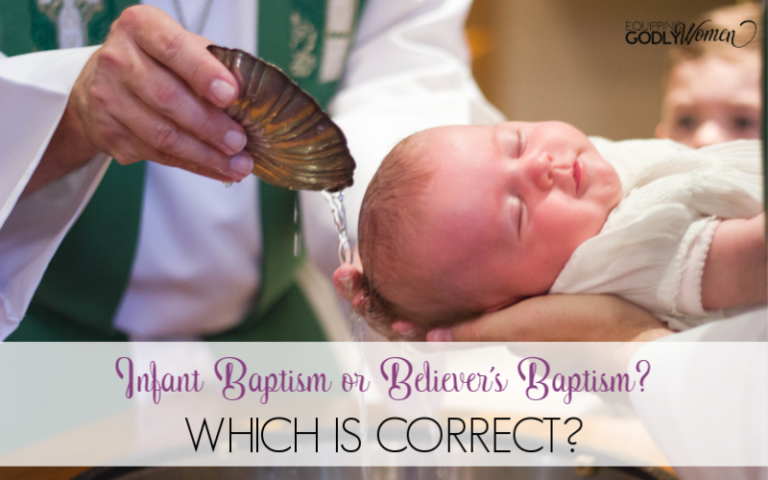What Is The Holy Spirit (and What Does He Do?)
Want to learn more about the Holy Spirit? In this article, Erin Odom digs into who the Holy Spirit is, what the Holy Spirit does, how different Christian denominations view the Holy Spirit, plus more!
As the granddaughter of a Southern Baptist pastor, I’m sure I heard about the Holy Spirit from the time I was born. But I don’t think I really experienced the Holy Spirit’s working in my own life until around my teenage years.
I’ll never forget hearing the Holy Spirit remind me of a popular Scripture from my childhood as I took my seat on my first solo flight, which would take me on my first international mission trip–to Scotland.
And the peace of God, which transcends all understanding, will guard your hearts and your minds in Christ Jesus. –Philippians 4:7
I was 17, and my mother was battling cancer. My parents headed directly to the hospital for my mom to have surgery to remove the cancer shortly after dropping me off at the airport.
After drying my eyes and buckling my seatbelt, I looked at the woman seated next to me and said: “This is it! This must be what ‘the peace that passes understanding’ must mean! I have peace now that I shouldn’t have!”
I quickly explained the situation to my new friend, an elderly woman who happened to be a Christian herself. “Yes, this is the peace of God that passes understanding,” she confirmed.
I knew right then and there that the Holy Spirit had brought that Scripture–Philippians 4:7–to mind, and the peace I felt was indeed from Him.
It’s been nearly three decades since that incident, and it was only the beginning of seeing, feeling, and witnessing the Holy Spirit do an amazing work in my life and the lives of those around me.
If you’re wondering, “What is the Holy Spirit?” or “What does the Holy Spirit do?” you’re in the right place.

In this article, we’re diving deep into Scripture to answer the following questions:
What Is the Holy Spirit?
The Holy Spirit is the Spirit of God and the third person of the Holy Trinity, which is comprised of the Father, Son, and Holy Spirit. Most Christians believe that the Holy Spirit enters a person at the moment of salvation. (This is my personal view.)
Both Protestants and Catholics believe in the Holy Spirit, and the Holy Spirit is mentioned throughout Scripture in both the Old and New Testament.
We know that the Holy Spirit is synonymous with the Spirit of God because of how God’s Spirit and the Holy Spirit are referred to throughout Scripture in both the Old and New Testaments.
Ezekiel 36:27, in the Old Testament, says this of the Holy Spirit: “And I will put my Spirit in you and move you to follow my decrees and be careful to keep my laws.”
We see this Scripture fulfilled in the New Testament, when Jesus says that, after He ascends to Heaven, the Father will send the Holy Spirit to live inside of those who believe in Him.
In John 14:16, Jesus says: “And I will ask the Father, and he will give you another advocate to help you and be with you forever—the Spirit of truth. The world cannot accept him, because it neither sees him nor knows him. But you know him, for he lives with you and will be in you.”
Jesus further clarifies the role of the Holy Spirit in verse 26 of this same passage: “But the Advocate, the Holy Spirit, whom the Father will send in my name, will teach you all things and will remind you of everything I have said to you.”
I have seen the Holy Spirit’s advocacy time and time again in my personal life, as He’s reminded me of the Truth of God’s Word and led and guided me into God’s will for my life.
What Is the Holy Spirit in Christianity?
Both Catholics and Protestants believe the Holy Spirit is the Spirit of God and the third person of the Holy Trinity. The Holy Spirit’s equality with both the Father and the Son (Jesus) was established at the Council of Constantinople in the year 381. This came after some had challenged the Holy Spirit’s divinity.
Christianity is not the only religion that believes in a holy spirit. Muslims, for example, believe the holy spirit is the Angel Gabriel. For the purpose of this article, we will focus on what both Protestant and Catholic Christians believe about the Holy Spirit in the Bible.
Who Is the Holy Spirit to Catholics?
Catholics believe the Holy Spirit is pivotal in providing the grace needed to know Jesus Christ as Lord and Savior and in the sanctification of souls. This sanctification is evidenced by a believer possessing gifts of the Holy Spirit and the fruit of the Holy Spirit, which we will explore more later in this post.
Catholics believe they receive the Holy Spirit at baptism, which usually happens in infancy when Catholic parents bring their children to the Church to be baptized by a priest. Baptism–and, therefore, the Holy Spirit’s arrival in a Christian’s life–can also occur at any age for those who convert to Catholicism later in life.
According to Catholic Answers, Catholics also receive “a special strength of the Holy Spirit” at confirmation, which typically happens for lifelong Catholics during adolescence.
Who Is the Holy Spirit to Protestants?
Protestants believe the Holy Spirit attracts people to Christ and comes to live inside their souls at salvation. They also believe the Holy Spirit sanctifies Christians throughout life on earth, empowering them to live out the gifts of the Spirit (see below) and the fruit of the Spirit (see below) by doing good works.
Most mainline Protestant denominations–like Baptists, Presbyterians, Methodists, etc.–believe similarly to Catholics when it comes to who the Holy Spirit is and what the Holy Spirit’s role is in a Christian’s life.
However, denominations that fall under the umbrella of Pentecostalism–like Foursquare, Church of God, Assemblies of God, etc.–believe a few key differences about the Holy Spirit. These differences are not considered salvation issues. Instead, these differing beliefs about the Holy Spirit are considered gray areas that Christians of different denominations can agree to disagree on without it affecting their eternal salvation.
Protestants from the Pentecostal tradition tend to elevate the Holy Spirit’s role in a believer’s life. This elevation is primarily emphasized in what Pentecostals call the baptism of the Holy Spirit and in the role of supernatural gifts of the Holy Spirit.
Pentecostals believe Christians receive the Holy Spirit in what is known as a baptism of the Holy Spirit, or a “second baptism,” as opposed to receiving Him at the moment of salvation, as mainline Protestants believe. Most Pentecostals believe this second baptism is evidenced by a Christian speaking in tongues.
The supernatural gifts more commonly seen in Pentecostal churches today include “falling out in the Spirit” or “being slain in the Spirit,” which is when a believer faints or falls to the ground when overcome with the Holy Spirit’s work in his or her life. This can also include speaking in tongues, spontaneous laughter, supernatural healings, and prophetic words.
While my mother’s side of my family is Southern Baptist, my paternal grandmother was a faithful Pentecostal. Although my family’s Baptist church did not practice supernatural gifts, I observed believers in my grandmother’s church falling into spontaneous laughter and speaking in tongues. Experiences like these helped me appreciate all different denominations as integral to Christ’s larger body.
What’s the Difference Between the Holy Spirit vs. the Holy Ghost?
There is no difference between the Holy Spirit and the Holy Ghost. These terms are used interchangeably in the Christian faith.
Some versions of the Bible call the Spirit of God the Holy Spirit, while others call the Spirit of God the Holy Ghost. The Holy Spirit is the term used more often in modern times, while the Holy Ghost was used more often in the past. The Holy Spirit and the Holy Ghost are one and the same.
When my children ask me if ghosts are real, I often respond with: “The Holy Ghost is real! That is for sure!”
Other names for the Holy Spirit in the Bible include:
- the good Spirit (Psalm 143:10 NIV)
- the Eternal Spirit (Hebrews 9:14 NIV)
- Advocate (John 14:16 NIV)
- Comforter (John 14:16 KJV)
- Helper (John 14:16 ESV)
- Friend (John 14:16 MSG)
- the Spirit of Truth (John 14:17 NIV)
In addition, there are many places in Scripture where the Holy Spirit is referred to as “the Spirit of,” such as “the Spirit of the Lord” (Acts 5:9), “the Spirit of life” (Romans 8:2), and “the Spirit of glory” (I Peter 4:14).
What Does the Holy Spirit Do?
Today, the Holy Spirit lives inside of Christians and aids them in living out the Christian faith. In the Old Testament, the Holy Spirit is shown as participating in the creation of the world (Genesis 1:2), in the creation of life (Psalm 104:29-30), and in giving prophecies (Ezekiel 2:2).
As the third person of the Trinity, the Holy Spirit is depicted as doing many other things in the entirety of Scripture, including:
- Interceding for believers in prayer (Romans 8:26-27)
- Empowering believers (Acts 1:8)
- Comforting believers (John 14:26)
- Sanctifying believers (I Corinthians 6:11)
- Teaching believers (John 14:6)
- Convicting believers of sin (John 16:8)
What Are Some Bible Verses About the Holy Spirit?
There are many Bible verses throughout all of Scripture, in both the Old and New Testament, about the Holy Spirit. Some of the most popular Bible verses about the Holy Spirit include:
- John 14:26– “But the Advocate, the Holy Spirit, whom the Father will send in my name, will teach you all things and will remind you of everything I have said to you.”
- I Corinthians 6:19– “Do you not know that your bodies are temples of the Holy Spirit, who is in you, whom you have received from God? You are not your own;”
- Galatians 5:22-23– “But the fruit of the Spirit is love, joy, peace, forbearance, kindness, goodness, faithfulness, 23 gentleness and self-control. Against such things there is no law.”
- Luke 11:13– “If you then, though you are evil, know how to give good gifts to your children, how much more will your Father in heaven give the Holy Spirit to those who ask him!”
- Ephesians 4:30– “And do not grieve the Holy Spirit of God, with whom you were sealed for the day of redemption.”
- Romans 8:26– “In the same way, the Spirit helps us in our weakness. We do not know what we ought to pray for, but the Spirit himself intercedes for us through wordless groans.”
- Isaiah 11:2– “The Spirit of the Lord will rest on him—
the Spirit of wisdom and of understanding,
the Spirit of counsel and of might,
the Spirit of the knowledge and fear of the Lord—”
What Are the Gifts of the Holy Spirit?
The Bible lists numerous gifts of the Holy Spirit in I Corinthians 12:8-10, including wisdom, knowledge, faith, healing, miraculous powers, prophecy, distinguishing spirits, speaking in tongues, and interpreting tongues.
Both Catholics and Protestants agree that all Christians will receive spiritual gifts, but most believe that not everyone will receive every gift.
However, as noted above, Pentecostals tend to believe that most Christians today are able to receive the gift of tongues. In contrary, some other denominations believe that the gift of tongues and some of the more supernatural gifts of the Spirit (such as healing) have ceased to exist in modern times.
Catholics list seven specific gifts of the Holy Spirit, and their list varies slightly from the lists you’ll find in Romans 12:6–8, 1 Corinthians 12:4–11, and 1 Corinthians 12:28. The seven gifts of the spirit in the Catholic church include: wisdom, understanding, counsel, fortitude, knowledge, piety, and the fear of God.
What Are the Fruits of the Holy Spirit?
The Bible names the fruit of the Spirit as love, joy, peace, patience, kindness, goodness, gentleness, faithfulness, and self-control in Galatians 5:22-23. Living out these nine gifts of the Spirit are considered the ultimate test in determining whether someone is a Christian and filled with the Holy Spirit.
If you’re unsure about your salvation, examining your life for the fruit of the Spirit can help be a litmus test that gives you more confidence in your eternal security.
Is the Holy Spirit God?
Yes, most Christians believe the Holy Spirit is fully God.
Christians consider the Holy Spirit to be one part of the triune Godhead or the Trinity, which is comprised of the Father, Son, and Holy Spirit. Note that Christians believe in one God who exists in the above three persons.
What Does the Holy Spirit Look Like?
The Bible describes the Holy Spirit as taking on different forms, including that of a dove (Luke 3:22), tongues of fire at Pentecost (Acts 2:3-4), wind (Acts 2:1), and water (John 7:37-39). Since the Holy Spirit is a spirit, it does not always take on a tangible form.
What Is Blasphemy Against the Holy Spirit?
Most Christians believe that blasphemy against the Holy Spirit refers to completely rejecting God or not believing in Him at all. This is considered the only unforgivable sin, as mentioned in Matthew 12:31-32, Mark 3:28-30, and Luke 12:10.
While there is some disagreement among Christians regarding the exact nature of blasphemy of the Holy Spirit, many agree that it involves denying the Holy Spirit’s power in a given situation.
Some believers argue that blasphemy against the Holy Spirit is no longer relevant in today’s culture. For example, GotQuestions.org states,
“Blasphemy against the Holy Spirit has to do with accusing Jesus Christ of being demon-possessed instead of Spirit-filled.” Since Jesus is no longer physically present on earth, those who hold this view believe that this particular sin no longer occurs.
However, the vast majority of Christians believe that blasphemy of the Holy Spirit is the conscience rejection of God, which remains relevant today.
When I was a child, I worried that I would accidentally commit of the sin blasphemy against the Holy Spirit. “What if I don’t realize that I am blaspheming against the Holy Spirit and get condemned to hell since it’s the only unforgivable sin?”
As an adult, I have compassion for that pastor’s granddaughter who spent time fretting over accidentally rejecting God. I now realize that my salvation is secure and that Scripture even says in Ephesians 1:13-14 that the Holy Spirit Himself is a deposit that guarantees salvation. It is impossible to accidentally reject God.
What do you think? Do you adhere to the Catholic, mainline Protestant, or Pentecostal view of the Holy Spirit? If you are a Christian, how have you seen the Holy Spirit work in your life?







